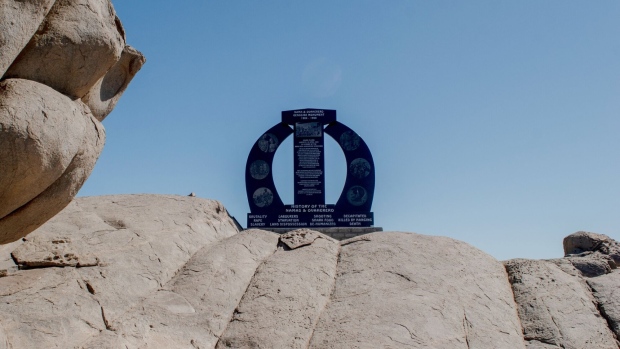Jun 28, 2024
Namibia to Set Up Firm for German Genocide Victims’ Descendants
, Bloomberg News

(Bloomberg) -- Namibia plans to set up a special purpose vehicle that descendants of victims of the 1904-1908 genocide will manage and control, Vice President Netumbo Nandi-Ndaitwah said.
The SPV will oversee the allocation and use of funds earmarked for reconstruction and reconciliation programs for affected communities, Nandi-Ndaitwah said at the Chiefs Forum Thursday in the capital, Windhoek.
“The Namibian government will not interfere with the Atonement Fund but it will be there to keep an eagle’s eye over the fund to ensure that it is used for its intended purpose and the fulfillment of the objectives of the fund, which is the improvement of the living conditions of the descendants of the victims of genocide,” she said.
Germany occupied Namibia from 1884 until 1915. Between 1904 and 1908, tens of thousands of Hereros and Nama were slain, driven into the desert to die of thirst or interred in concentration camps after General Lothar von Trotha, the military ruler of what was then German South West Africa, ordered an offensive to quell a rebellion.
In May 2021, after five years of negotiations, Germany committed to funding projects totaling 1.1 billion euros ($1.2 billion) over 30 years as restitution. Berlin also issued an official apology, acknowledging the deaths of about 65,000 Herero and 10,000 Nama people as genocide for the first time.
Namibia’s government said at the time that Germany’s offer was inadequate, but had been agreed to on the understanding that the amount will be subject to future revision.
While Germany conceded that the killings constituted genocide, it steered clear of saying it would pay reparations, and instead agreed to fund development projects in areas inhabited by communities whose ancestors were targeted.
Sign up here for the twice-weekly Next Africa newsletter
While the current agreement isn’t ideal for Namibians, discussions with Germany will proceed to adjust the reparations amount, awaiting endorsement from the National Assembly, Nandi-Ndaitwah said.
“We should however, remain optimistic that what is conceived as insignificant or too little today may redouble and continue, as the Jews did with their claims,” she said.
The affected communities have previously expressed their desire to lead negotiations themselves, especially over issues of land ownership and reparations.
You can follow Bloomberg’s reporting on Africa on WhatsApp. Sign up here.
©2024 Bloomberg L.P.


